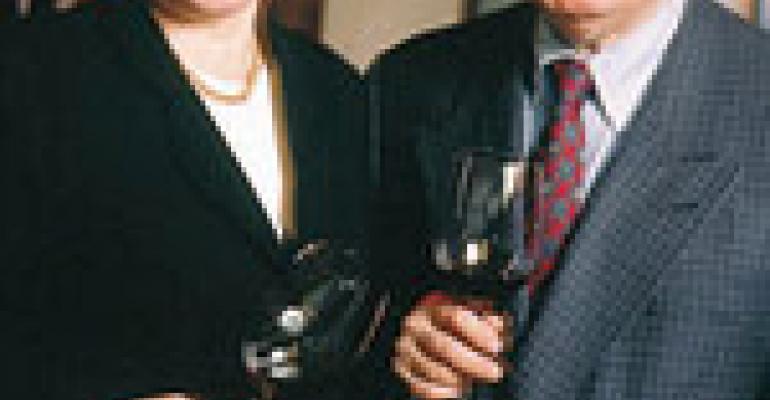We get a kick out of the television ads promoting tourism to Israel. They flash colorful images and enticing words such as “nightlife,” “beauty” and “excitement,” without revealing the location of all this promise until the final tagline: “Israel. Who knew?”
On our own first trip to Israel recently, we experienced considerable surprise, much like the ads suggest, as we explored the country’s wine.
Of course, we’ve known for years that Israel makes good wine, and we’ve watched the quality of the wine improve considerably from year to year. We’ve done blind tastings of kosher wines in which the Israeli wines stood head and shoulders above those from other countries, and we’ve tasted Israeli wines against similar wines from the world’s major wine regions and found them comparable in quality.
Still, we were in for some surprises when we visited the country.
One of the key facts that we came to realize is that Israel’s wine regions are not desert hot. In the Golan Heights area in northeastern Israel, for example, the temperature ranges from the upper 70s to the 90s during the growing season, which is hardly extreme. Israel’s climate is Mediterranean—no rain during the growing season—and it varies considerably according to distance from the sea and especially altitude of a particular vineyard.
Because the country is fairly southern, situated at about the same latitude as San Diego, Calif., top winemakers have learned to seek out high-altitude sites that offer cooler temperatures. for example, altitudes of Golan Heights Winery’s vineyards range from 1,300 feet to 3,900 feet.
Another factor that surprised us is the advanced technology being applied in the vineyards. We saw “pressure bombs,” which resemble a foil pouch enveloping a leaf, that measure the amount of moisture a vine needs. We saw dendrometers, which continually measure the diameter of the vine’s trunk, to provide data on water uptake and vine metabolism, a technology we have seen only once elsewhere in the world.
Perhaps this technology should not have surprised us, though, considering that Israel invented drip irrigation, a critical aide for grape growers everywhere.
For one winemaker, Californian Victor Schoenfeld of Golan Heights Winery, the ultimate benefit of this technology is to improve the evenness of ripening within each vineyard block.
“Excellent wine almost always comes from vineyards that have uniform ripening,” he says.
Winemaker Micha Vaadia of Galil Mountain Winery in the Galilee region echoed this belief in explaining that underripe grapes tend to dominate the wine’s flavor.
Daniel Rogov, an ex-New Yorker who lives in Israel and is that country’s leading wine critic, spoke about Israeli wines.
“When I first came here,” he says, referring to some 20 years ago, “there was not a bottle of Israeli wine that I would put in my cellar. Today, one-third of my cellar is Israeli wine.”
Interest in wine has exploded within Israel, he says, as has the number of wineries. He credits Golan Heights Winery with starting a revolution in bringing in modern equipment, hiring foreign-trained winemakers and planting vineyards in “the most careful, almost tedious way.” As a result, other wineries saw the need to upgrade.
WINE OF THE WEEK 2003 Yarden Cabernet Sauvignon, Galilee The 2003 vintage in Israel did not suffer from the extremes of heat and drought that European wineries experienced. As a result, this very good Cabernet Sauvignon is as refined as it is rich, and it has the ability to age gracefully for a decade. Aromas and flavors include berry, cherry and plum with notes of mint and spice. Wholesale case price: $245
Rogov believes that it is a mistake for Israel to position its wines as kosher because that limits the audience for the wines.
“There is no contradiction for a wine between being kosher and being high-quality,” he says, excepting the heat-processed wines, labeled as Mevushal.
In fact, during our visit we hardly thought about the kosher factor, although almost all of the wines we tasted were in fact kosher. We judged them as we would any other wines, and the wines stood up to our scrutiny.
We were particularly impressed with the Cabernet Sauvignon wines we tried and also found the Syrahs quite good. In general the reds seemed to show better than the whites, but exceptions included a couple of good Sauvignon Blancs and a fabulous Gewürztraminer as well as a sparkling Blanc de Blancs that is entirely Chardonnay.
Geographically speaking, Israel is only about as big as New Jersey, but in the universe of wine, it’s a major force that should be taken seriously.

